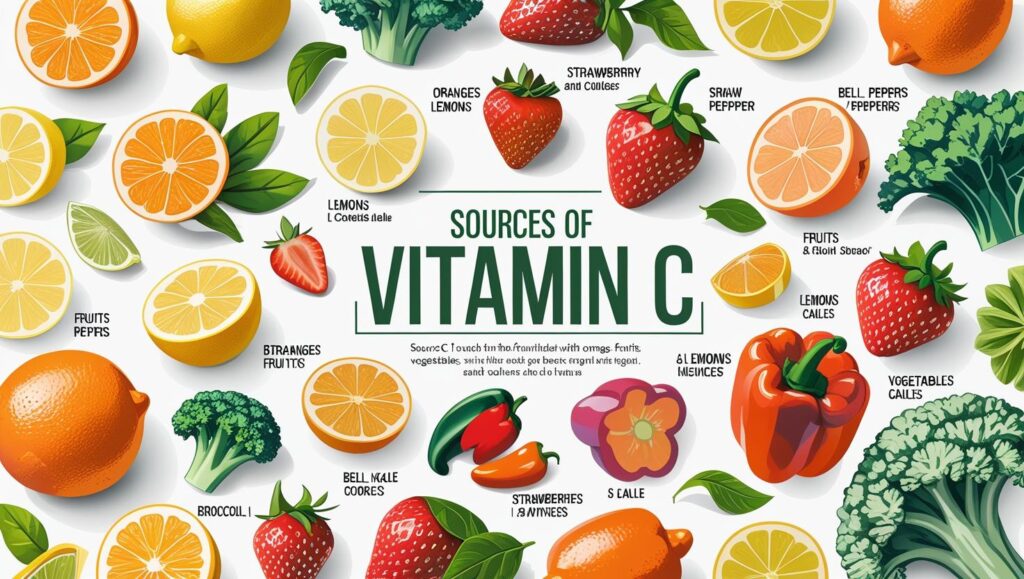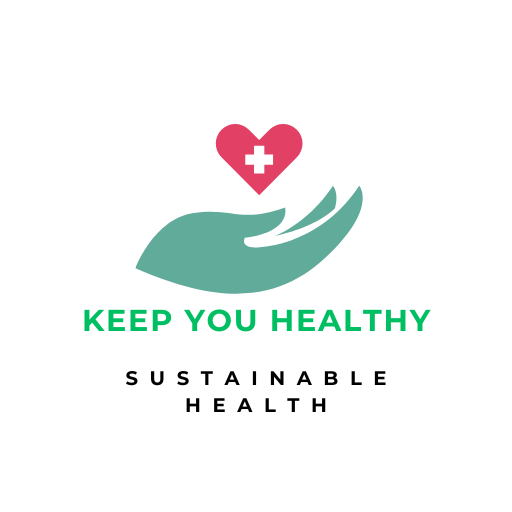Introduction
Vitamin C, also known as ascorbic acid, is one of the most widely recognized and essential nutrients in human health. Discovered in the early 20th century, vitamin C gained fame as the cure for scurvy, a disease that once plagued sailors on long voyages. Today, it is celebrated not only for its historical significance but also for its powerful antioxidant properties, vital role in immune function, and crucial support for skin and cardiovascular health. In this article, we will explore the functions, benefits, sources, recommended daily intake, and the science-backed reasons why vitamin C should be a staple in everyone’s diet.

What is Vitamin C?
Vitamin C is a water-soluble vitamin, meaning it dissolves in water and is not stored in large amounts in the body. This means a continuous supply from food or supplements is necessary to maintain adequate levels. It acts primarily as an antioxidant, helping to neutralize free radicals that can damage cells and contribute to aging and chronic diseases.
Unlike most animals, humans cannot synthesize vitamin C internally and must obtain it from external sources. This makes regular consumption of vitamin C-rich foods or supplements essential for maintaining health.
Health Benefits of Vitamin C
1. Boosting Immune Function
One of vitamin C’s most well-known roles is its contribution to the immune system. It supports various cellular functions of both the innate and adaptive immune systems. Vitamin C helps to:
- Stimulate the production of white blood cells.
- Enhance the skin’s barrier function to block pathogens.
- Improve the function of phagocytes, which engulf harmful invaders.
Studies have shown that while vitamin C may not prevent the common cold, it can reduce its severity and duration when taken consistently.
2. Antioxidant Protection
Free radicals are unstable molecules that can cause oxidative stress, leading to cellular damage and contributing to diseases such as cancer, heart disease, and Alzheimer’s. Vitamin C acts as a potent antioxidant that neutralizes free radicals and regenerates other antioxidants like vitamin E.
This protective role is particularly important for people exposed to pollution, smoking, or high stress—all factors that can increase oxidative stress in the body.
3. Collagen Synthesis and Skin Health
Collagen is the most abundant protein in the human body and is essential for healthy skin, cartilage, tendons, ligaments, and blood vessels. Vitamin C is a cofactor in the enzymatic process that stabilizes and cross-links collagen molecules.
A deficiency in vitamin C leads to weakened connective tissues, which is evident in scurvy. For skin health, vitamin C:
- Promotes wound healing.
- Reduces the appearance of wrinkles.
- Protects against UV-induced photodamage.
Topical formulations containing vitamin C are also widely used in dermatology to brighten the skin and reduce hyperpigmentation.
4. Heart Health
Vitamin C supports cardiovascular health by several mechanisms. It helps:
- Reduce blood pressure.
- Improve endothelial function (the performance of the inner lining of blood vessels).
- Decrease levels of LDL (“bad”) cholesterol and triglycerides.
A meta-analysis of studies has suggested that people who consume more vitamin C have a lower risk of heart disease, although more research is needed to confirm direct causality.
5. Iron Absorption
Vitamin C enhances the absorption of non-heme iron (the type of iron found in plant-based foods), by reducing it to a more easily absorbed form. This makes it especially important for vegetarians and individuals at risk of iron-deficiency anemia.

Recommended Daily Intake
The Recommended Dietary Allowance (RDA) for vitamin C varies by age, sex, and life stage:
- Adult men: 90 mg/day
- Adult women: 75 mg/day
- Pregnant women: 85 mg/day
- Breastfeeding women: 120 mg/day
- Smokers: An additional 35 mg/day due to increased oxidative stress
While the RDA is sufficient to prevent deficiency, higher intakes may be beneficial for optimal antioxidant protection and immune support. The upper tolerable limit for adults is set at 2,000 mg/day to prevent side effects such as gastrointestinal discomfort or kidney stones.
Natural Sources of Vitamin C
Vitamin C is found abundantly in a variety of fruits and vegetables. Some of the best dietary sources include:
- Citrus fruits (oranges, grapefruits, lemons)
- Strawberries
- Kiwi
- Pineapple
- Bell peppers (especially red)
- Broccoli
- Brussels sprouts
- Kale
- Tomatoes
- Guava (exceptionally high in vitamin C)
Cooking can reduce the vitamin C content of foods, so it is best to consume fruits and vegetables raw or lightly cooked to preserve their nutrient value.

Vitamin C Deficiency: Causes and Symptoms
Vitamin C deficiency is rare in developed countries but still occurs, especially among people with limited food variety, alcohol dependence, or malabsorption issues.
Symptoms of deficiency include:
- Fatigue and weakness
- Swollen, bleeding gums
- Easy bruising
- Slow wound healing
- Dry, scaly skin
- Joint pain
- In severe cases: scurvy, characterized by severe connective tissue damage, anemia, and gum disease
Early recognition and treatment with vitamin C supplementation typically resolve symptoms quickly.
Supplements: Are They Necessary?
For most healthy individuals who consume a balanced diet rich in fruits and vegetables, vitamin C supplementation may not be necessary. However, certain groups can benefit from supplements:
- Smokers
- Elderly individuals
- Those with chronic diseases
- People with limited access to fresh produce
- Individuals under high physical or emotional stress
Vitamin C supplements come in many forms—tablets, capsules, powders, and even gummies. Some contain ascorbic acid, while others may be buffered or combined with bioflavonoids. Bioavailability is similar across forms, but people with sensitive stomachs may prefer buffered versions.
Myths and Misconceptions
There are several persistent myths about vitamin C:
1. It can prevent colds entirely.
While it may reduce symptoms and duration, it does not reliably prevent colds in the general population.
2. More is always better.
Mega-dosing beyond 2,000 mg/day offers no proven benefit and may lead to side effects.
3. It can cure chronic diseases.
Vitamin C supports overall health but is not a standalone cure for serious illnesses. It should be part of a broader wellness and treatment strategy.
Conclusion
Vitamin C is a cornerstone nutrient with far-reaching benefits for immune health, skin integrity, and disease prevention. Its antioxidant properties, ability to boost collagen synthesis, and role in iron absorption make it indispensable for overall well-being. While it is best obtained through a diverse diet rich in fruits and vegetables, supplementation can help bridge gaps in certain populations.
With all the health-promoting properties of vitamin C, ensuring adequate intake is one of the simplest and most effective steps you can take toward a healthier life. Whether you’re reaching for an orange or considering a supplement, vitamin C deserves its reputation as a vital ally in your nutritional toolkit.


